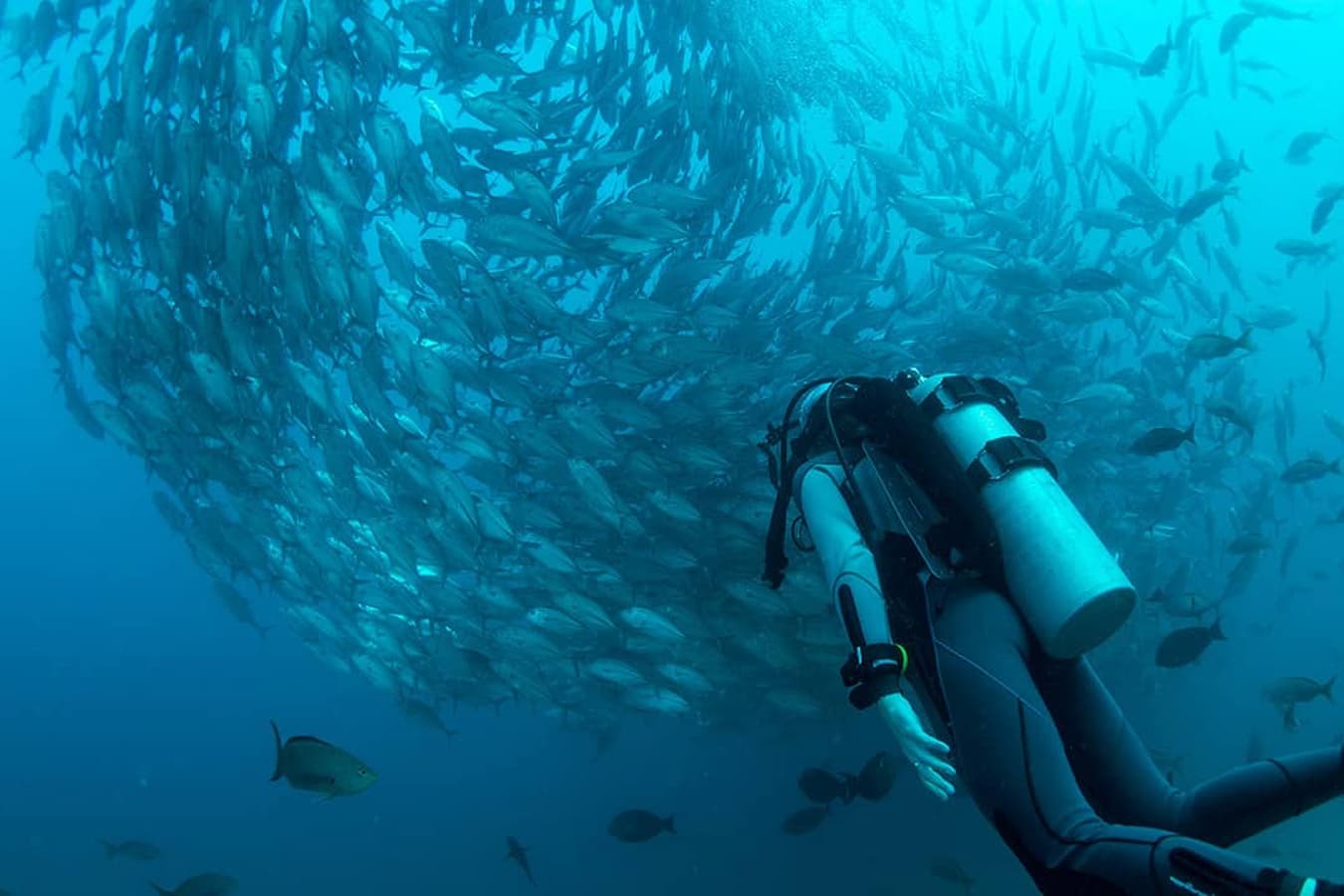Q: I have always wanted to try diving but have a condition called developmental co-ordination disorder (often known as dyspraxia). Apparently, I have had this all my life, but it has never limited me before; in fact, I had forgotten I had it until my GP wouldn’t sign the medical statement, as she was unsure whether it would affect diving. I have been directed to you to find out. So, can I dive?
A: This is an interesting conundrum. Rather unfortunately termed ‘clumsy child syndrome’ and ‘congenital maladroitness’ in years gone by, dyspraxia refers to difficulty with planning of movements and co-ordination, in the absence of another cause. The symptoms are very variable, but might include issues such as tripping over one’s own feet, problems combining movements in a controlled way (eg. writing, fastening buttons, tying shoelaces, etc), bumping into people accidentally, and knocking things over. Basically, most of us on a Monday morning after a weekend’s diving. Sometimes other aspects are associated, eg. speech problems, difficulties with reading and spelling (dyslexia), maths (dyscalculia), drawing (dysgraphia); and there may be more extensive features of autism or attention deficit disorder in addition. Dyspraxia affects 5-6 percent of children, with a male to female ratio of 4:1; the subtler manifestations may make diagnosis difficult or delayed, so it may be even more common than currently realised.
Clearly diving does require learning plenty of new physical skills, some of which require a high degree of dexterity and co-ordination. While this might take longer in someone who has dyspraxia, I would not view this as an automatic disqualifier. More difficult to foresee is the impact that some of the complications of dyspraxia can have: due to movement difficulties and sensory overload, many dyspraxics suffer with fatigue, panic attacks, poor short-term memory and sense of direction (often struggling to distinguish left from right). So I would suggest an individual assessment in all cases, from a doctor with diving experience, to ensure none of the above issues are likely to affect underwater safety.
Q: I am a refined, mature but physically active ‘coffin-dodger’. I still enjoy sport (tennis, golf and the like) but only recently discovered the joys of diving. My wife and I take the odd cruise, where she can sunbathe and gossip to her heart’s content while I immerse myself in the reef’s feast of fecundity. However, at the enviable age of 74, I find, like many of my contemporaries, that all is not well in the trouser department. My GP has prescribed me Viagra, which I must say does wonders, but I am hesitant to dive the day after using it, for fear of calamity if it is still in my system. Are my concerns well-founded?
A: Viagra was first synthesised here in the good old UK. It was disappointing in the context for which it was originally designed (treatment of high-blood pressure and angina), but a large proportion of (presumably quite excited) trial subjects reported that it induced remarkable penile erections. Hence it was remarketed for erectile dysfunction, and the ubiquitous blue pill is now popular the world over.
Medically, it does have a profound effect on dropping the blood pressure in the lung circulation, where it widens the blood vessels. And this might have relevance for divers, as the lungs help clear any rogue bubbles by trapping them and allowing them to diffuse away. By dilating blood vessels, more bubbles may be able to pass through to the systemic circulation, causing symptoms. However, there’s not been a shred of evidence to support this, and as the half-life of Viagra is only four hours, it will be out of your system by the time you dive the day after using it.
Also check out Can you scuba dive with a false front tooth?








